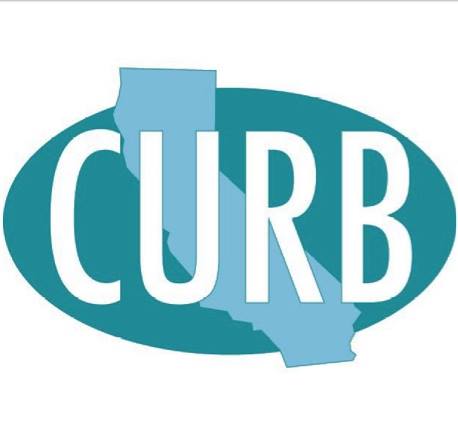You have the right to feel safe and welcome in your school. You also have rights when you come in contact with the police in school.
Many Schools in San Diego have police personnel assigned to them – The San Diego Unified Police Dept (SDUPD). These police personnel can stop, question, search, handcuff and arrest students and adults.
If you are stopped by police personnel at school:
- Stay cool and calm.
- Know that you have the right to remain silent. If you choose to speak, your words can be used against you. You can always choose not to speak or answer questions by saying, “I want to remain silent.”
- Keep your hands where the officer can see them.
- Don’t run away from an officer.
- Don’t resist or interfere with an officer (even if you think he or she is wrong).
- If you’re arrested, ask for a lawyer immediately! A lawyer will be provided for you.
- Remember the officer’s badge number and name.
- Write down everything! you remember as soon as you can! (Like the officer’s badge number and name)
- Try to find witnesses. Get their names and phone numbers.
- If you are hurt, get medical attention! Take photos of the injuries as soon as possible.
METAL DETECTORS
Schools can use metal detectors (scanners) to stop students from bringing dangerous items into school.
If you set off the metal detector, an SSO may scan you with a hand-held metal detector or wand. This must be done by an SSO of the same sex as the student, unless there is no alternative. The SSO cannot touch your body during this scan.
Students who refuse to go through metal detectors must not be sent home or denied entry into the school. A student who refuses to go through a metal detector should be sent to the principal’s office.
The principal, vice principal or a dean must be present at the metal detectors.
SEARCHES
A search is when an officer looks through your belongings or your pockets to find evidence of a crime or broken rule. Police officers and SSOs can search you, but that depends on certain things.
To search you or your belongings (like your bag), a school safety officer must have reasonable suspicion* to believe that you broke a school rule or committed a crime, and the extent of the search must be related to the reason that you are being searched.
*Reasonable suspicion is a belief that you broke a school rule or criminal law. The belief must be based on facts the school safety officer knows about you. It cannot be based on a feeling, a rumor, the color of your skin or the clothes you are wearing. You can’t be searched just because the school safety officer thinks that you “look like” a drug dealer.
For example, an officer cannot search your pockets if he or she suspects that you stole a computer from school. The reason is that you can’t hide a computer in your pocket, and the search (going through your pockets) must be related to the crime or rule violation that you are being suspected of committing (stealing a computer).
If an officer asks to search you or your bags, you can say: I DO NOT CONSENT TO THIS SEARCH. Saying this may not stop the search, but it’s the best way to protect your rights in case you are arrested.
No matter what, DO NOT resist or fight the officer! Resisting could get you arrested.
School safety officers need to get the principal’s permission before searching you and your things, unless it’s an emergency situation. For example, if a school safety officer thinks that you have a knife and you’re about to use it, he or she does not need the principal’s permission to try to find the knife.
You should only be searched by a school safety officer of the same sex as you, unless there is no alternative.
School safety officers and school employees are not allowed to strip search you, EVER. If you are ever asked to take off clothes, other than coats or shoes, contact the NYCLU immediately.
YOU HAVE THE RIGHT TO REMAIN SILENT
It is your choice whether or not to speak to an officer. If you do speak, everything you say can be used against you in a suspension hearing and in court. If you choose not to speak, you should still be polite to an officer.
If an officer wants to question you about a crime that took place in school, the school must get your parent’s or guardian’s permission first, except in an emergency. The principal or a representative of the principal must be present during the questioning.
You never have to answer questions, even if your parent says it is ok that school officials question you. Remember to be polite even when you don’t want to answer questions. Calmly tell the officer that you want to remain silent.
Police personnel are not permitted to question you during school about events that have nothing to do with school, except in an emergency. For example, if your friend stole something from a store, the police cannot take you out of class to question you.
In an emergency situation, the school must contact the Department of Education for permission to question you.
IF YOU ARE ARRESTED
You can be arrested in school, but only if an officer has probable cause* to believe that you committed a crime.
*Probable cause means that the officer knows facts (not a rumor or guess) that lead him or her to believe that it is more likely than not that you committed a crime. For example, an officer can arrest you if she saw you steal a computer from the school.
Never resist an arrest or fight an officer. Be smart about protecting your rights, even if you are frustrated, scared or angry.
If you are arrested, the officer most likely will place handcuffs on you. In most cases, an officer should avoid handcuffing you in front of your classmates. They should take you to a semi-private area, like the principal’s office, before putting you in handcuffs.
The school must tell your parent that you were arrested, no matter how old you are.
If your parent or guardian isn’t available, someone from the school staff who was not involved in the incident should go with you to the police station. The staff person should stay with you until your parent arrives.
YOU HAVE THE RIGHT TO MAKE A COMPLAINT
You can file a complaint if a school safety officer or police officer:
- Physically assaults you (punching, kicking, slapping, hair pulling)
- Curses at you
- Touches you inappropriately or makes inappropriate comments
- Makes negative comments about your race, religion, gender, accent, national origin or sexual orientation
- Disrespects you
To make a complaint about a school safety officer
A citizen who is dissatisfied with police services or believes they have witnessed or been a victim of police misconduct can file a cmplaint using one or more of the following methods:
- By telephone or in writing to the Internal Affairs Unit: 1401 Broadway, MS 709, San Diego CA 92101 (619) 531-2801
- To the Office of the Mayor, City of San Diego, 202 C Street, San Diego CA 92010
- In person, by telephone or by writing to the Citizen’s Review Board on Police Practices: 02 C Street, MS 9A, San Diego CA 92101 (619) 236-6296 citizensreviewboard@sandiego.gov
- By the Chief’s Confidential Telephone Recorded Hotline at (619) 531-2672.
Be ready to describe where and when the incident happened, the officer’s name, badge number and physical description, and what took place. You can make a complaint even if you don’t know all of these details.
You should also tell your principal about the incident.
Contact United Against Police Terror:
We cannot assist in every situation but we can sometimes help with your case, your suspension hearing or trouble with the police. By letting us know what’s going on in your school, you can help us help other young people. If you or someone you know is mistreated by an SSO or police officer, contact us:
- Email us at uaptsd@gmail.com
- Visit: uaptsd.org/
- Contact: American Civil Liberties Union of San Diego
ACLU of San Diego & Imperial Counties
P.O. Box 87131 San Diego, CA 92138-7131
*If you’re arrested and dont have a lawyer, call the Legal Aid Society at 212-577-3300.











